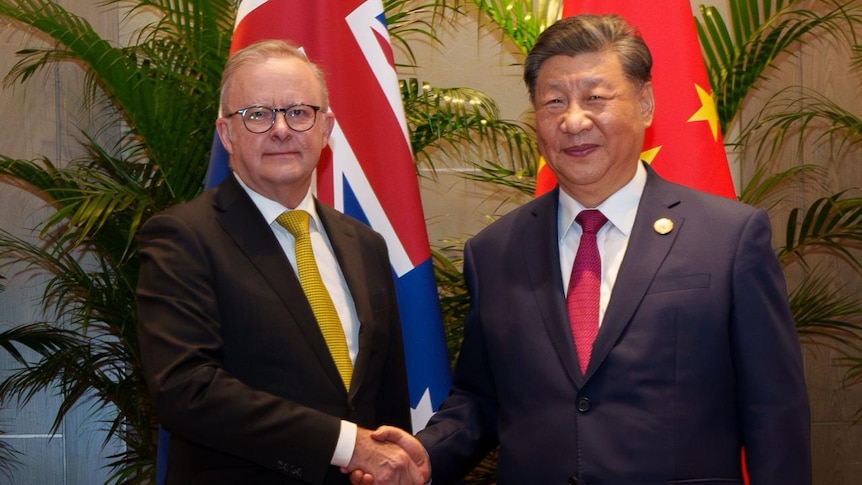
Prime Minister Anthony Albanese is set to embark on a pivotal six-day visit to China on March 15, 2024, with scheduled stops in three major cities: Beijing, Shanghai, and Chengdu. This trip comes at a crucial juncture as Australia grapples with the challenges posed by Donald Trump’s unpredictable “America First” policies while balancing its relationship with a nation that is both a vital economic ally and a growing strategic concern.
During his visit, Albanese will engage in annual leaders’ talks with China’s Premier Li Qiang and meet with President Xi Jinping. The focus of these discussions is expected to be on enhancing bilateral trade and addressing contentious issues that have marked recent interactions between the two nations.
Economic Opportunities and Challenges
A central theme during Albanese’s trip is the pursuit of job creation. China remains Australia’s largest export market, and the economic ties have shown resilience since the easing of previous trade barriers. In April, Australia reported record beef exports to China, highlighting the continued strength of this relationship.
To bolster these economic discussions, Albanese will be accompanied by a delegation of business leaders from key sectors such as finance, resources, agriculture, and education. The expanding middle class in China presents significant opportunities for Australian companies, which are eager to tap into this lucrative market. Despite ongoing efforts to diversify trade partnerships, the reality remains that a vast market like China is irreplaceable for Australia’s economy.
Yet, challenges persist. While the Australian government promotes the idea of “stabilisation” in relations with China, it is clear that Beijing expects greater political cooperation as a result of the growing trade relationship. Recently, China’s Ambassador to Australia, Xiao Qian, proposed expanding their free-trade agreement to include emerging fields like artificial intelligence (AI). Albanese’s response was notably non-committal, indicating the complexity of such discussions.
Richard McGregor from the Lowy Institute emphasized the apprehension surrounding Chinese technology, stating, “You not only have to use it, you have to use it securely and you have to use it securely in tandem with allies and partners.” He pointed out that China is not considered a trusted security partner, making deeper engagement in sensitive technological areas problematic.
Geopolitical Tensions and Domestic Commitments
Another significant concern for the Albanese government is the management of Chinese investment in sensitive sectors. The government has indicated intentions to reclaim the Port of Darwin from Chinese ownership, which has drawn the ire of Chinese officials. Beijing has accused Canberra of paranoia regarding foreign investment, yet Treasurer Jim Chalmers reaffirmed the government’s commitment to returning the port to Australian hands, stating, “We’ve made it very clear that we will see the Port of Darwin return to Australian hands.”
Furthermore, the visit is set against a backdrop of ongoing geopolitical tensions. Australia’s apprehensions regarding China’s military ambitions in the Pacific are compounded by recent incidents, including the People’s Liberation Army Navy’s activities around Australian waters. The Australian government remains vigilant about China’s military build-up and its implications for regional security, particularly concerning Taiwan and ongoing human rights violations in Hong Kong, Tibet, and Xinjiang.
As Albanese prepares for discussions, he is likely to address these pressing issues, even as Australia’s leverage in negotiations appears limited. The prime minister’s cautious approach is necessary, particularly as the pressures from both the Chinese leadership and the United States loom large.
Foreign Minister Penny Wong articulated the necessity of engaging with China, calling it central to addressing global challenges like climate change and public health. During a recent ASEAN meeting, she highlighted that Australia cannot afford to overlook China’s significant role in these areas.
Climate cooperation is anticipated to feature prominently in discussions, with both nations expected to announce initiatives in renewable energy. China is a leading manufacturer of electric vehicles and solar panels, making collaboration essential for Australia as it aims to meet its climate commitments. Caroline Wang from Clean Energy Finance noted, “They manufacture 70 percent of the world’s EVs, and 80 percent of solar panels,” underscoring the importance of Chinese technology in Australia’s green industrial ambitions.
As Albanese embarks on this complex journey, the looming presence of Trump’s administration and its tariff strategy raises further uncertainties. Australia seeks to maintain a strong alliance with the United States to counterbalance China’s growing influence in the region. McGregor succinctly captured the sentiment, stating, “Let’s not forget we’re getting it from both sides. So it’s a very perilous path we have to tread.”
The prime minister’s upcoming visit to China will undoubtedly require a careful balancing act, as he navigates the intricate relationship between economic opportunity and geopolitical realities.







